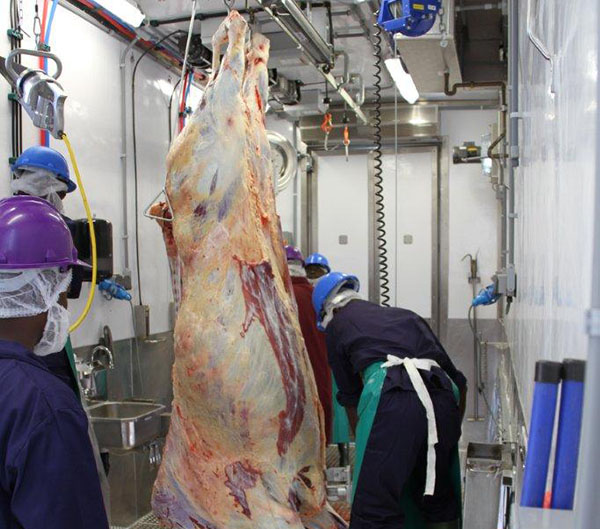There appears to be hope on the horizon for the northern communal areas, currently cut off from the rest of the country and some lucrative markets for their livestock, if assurances by Meatco are anything to go by.
Meatco CEO Mwilima Mushokabanji has said through market diversification and demand, the country’s meat-processing company ultimately seeks to pay competitive prices for farmers operating within the veterinary cordon fence (VCF), where 64% of the country’s national cattle herd is found.
The NCAs have a cattle population of 1.6 million. Addressing journalists yesterday, Mushokabanji acknowledged that there is a difference in the producer prices paid to livestock producers south of the VCF and in the NCAs.
He said the disparity is influenced by the realisation from the markets that prices differ from those achieved from the abattoirs south of the red line and those of the NCAs. “We request farmers in the NCAs to be patient as more viable markets are being developed to improve producer prices through better market returns,” he promised. Equally, he called on Namibian consumers to eat local beef to support the meat value chain in the NCAs. Mushokabanji said the corporation, through the Commodity-Based Trade (CBT) protocol, has the potential to export meat and meat products derived from animals raised from the
NCAs into more viable markets.
Discussions on these markets are at an advanced stage, which are expected to be operational by the end of the year. These markets include South Africa, Angola, Uganda, Tanzania, Egypt, DR Congo, Congo Brazzaville and Gabon in Africa, while in the Middle East, the markets include the United Arab Emirates, Saudi Arabia, Qatar, Kuwait and Oman.
“The application for Halaal certification, according to the requirements of the Gulf Cooperation Council, is in progress,” Mushokabanji stated. He added that the corporation has through the CBT approach managed to produce certified beef products by DVS, and marketed the beef in markets south of the VCF and exported it to Ghanaian markets.
To date, the company has through the Katima Mulilo Abattoir managed to ship 14 tonnes of beef to Ghana, and for further distribution in West Africa. The Ghanaian market is still a developmental market which requires further input, as it is expected to grow exponentially. “Botswana and South Africa continue to enjoy beef sales in this market.
Preliminary studies indicate that commodity prices in these markets are comparative to those achieved in South Africa,” Mushokabanji noted. He said Meatco will continue to explore and develop these markets to their full potential so as to contribute to increased market access to the best advantage of the NCAs’ farmers.
Furthermore, the corporation has managed to sell 108 tonnes of primal cuts in market segments south of the VCF of the country. “Feedback from the customers shows that the demand for beef from the NCAs is increasing. They claim that beef from the NCAs is tastier and healthier, owing to its free-range nature of production,” he continued.
The NCAs, which comprise the Zambezi, Kavango East, Kavango West, Oshikoto, Ohangwena, Omusati, Oshana and Kunene regions, is a livestock-rich part of Namibia. Locally, Mushokabanji said people have been sourcing livestock, meat and meat products from producers and abattoirs from the area south of the VCF, leaving the producers in the NCAs with a limited market for their livestock.
– ktjitemisa@nepc.com.na


